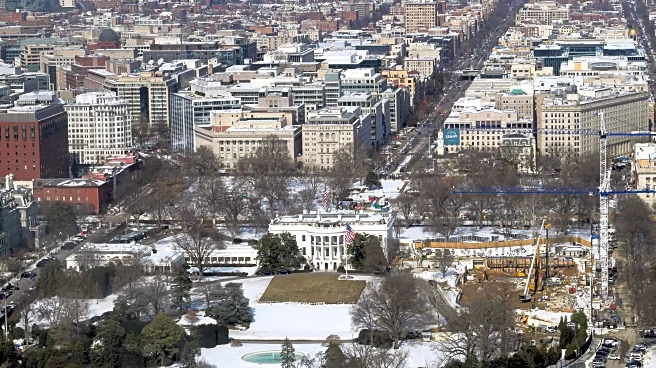What's Happening?
Harvard University has announced a $113 million deficit for the fiscal year, attributed to pressures from President Trump's administration. Despite the financial shortfall, the university received over
$600 million in donations, marking a record for the institution. The deficit is notable given Harvard's $6.7 billion operating base and follows a period of financial strain due to federal funding cuts and freezes imposed by the administration. Harvard's refusal to comply with federal demands for changes in governance, hiring, and admissions has led to a standoff, with the administration alleging insufficient action against antisemitism. A federal judge recently ruled in favor of Harvard, restoring most of the frozen research funding, but the administration plans to appeal the decision.
Why It's Important?
The financial challenges faced by Harvard highlight the broader implications of federal policy shifts under President Trump's administration for higher education institutions. The deficit underscores the potential risks for universities resisting federal demands, which could lead to significant funding cuts and operational challenges. Harvard's situation serves as a warning to other institutions considering whether to comply with the administration's 'Compact for Academic Excellence in Higher Education.' The ongoing legal battles and financial strain could impact research capabilities, international collaborations, and the overall financial health of universities across the U.S.
What's Next?
Harvard is intensifying efforts to seek alternative funding sources and improve operational efficiency. The university has imposed a hiring freeze, conducted layoffs, and scaled back expenses to mitigate financial strain. The administration's appeal against the federal judge's ruling could further impact Harvard's funding and operations. Other universities, such as MIT and Brown, have rejected the administration's compact, indicating potential resistance within the higher education sector. The evolving relationship between research universities and the federal government may lead to significant changes in funding and policy compliance.
Beyond the Headlines
The situation at Harvard raises ethical and legal questions about the balance between federal oversight and academic freedom. The administration's demands for ideological alignment in exchange for federal benefits challenge the traditional autonomy of higher education institutions. The compact's stipulations, such as capping international enrollment and freezing tuition, could have long-term implications for diversity and accessibility in higher education. The ongoing legal battles may set precedents for how universities navigate federal demands and protect their institutional values.











